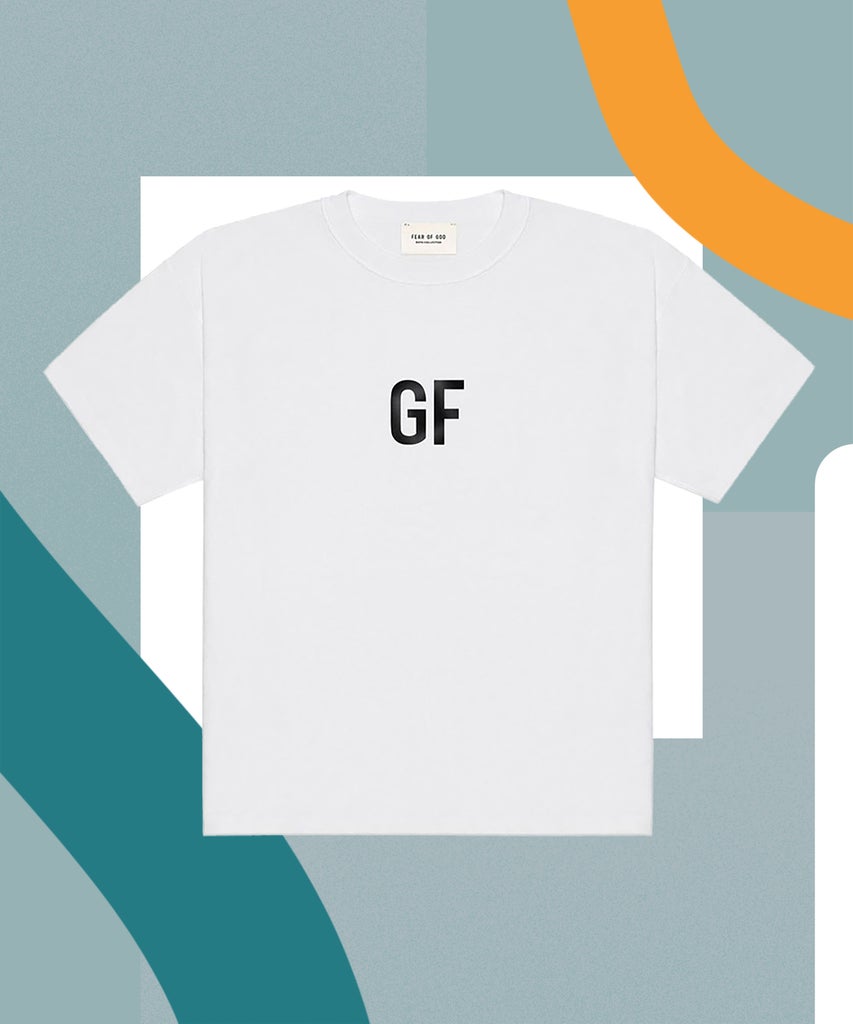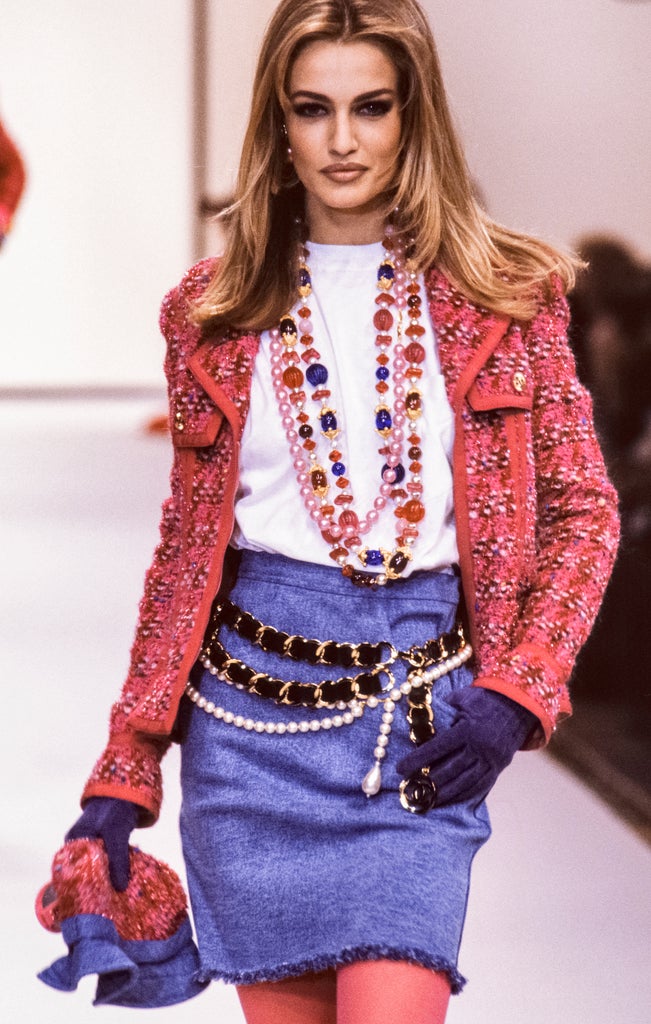
As I write this, I’m wearing my favorite white cotton T-shirt paired with jeans and an AC-induced pair of extra thick socks. My shirt is the product of Hanes’ long-standing collaboration with Re/Done. It cost $75. I wore an almost identical white T-shirt from James Perse yesterday. It, too, was $75.
The notable brand name stitched on their labels allowed them to cost a ridiculous amount of money, considering I could get a three-pack of Hanes originals for $9.99. Alas, I bought them both, purchases that I filed under “investment pieces.” After all, if history has anything to say about it, white T-shirts will never go out of style.
But that history is complicated. In the late 1700s, when the cotton (the material that would go on to be used most often in T-shirt production) crop took hold of America, a dark chapter was written into the legacy of the item — one with ramifications that are still felt today as fashion continues to profit off of Black people without paying them fairly for their labor.
According to Gene Dattel’s “Cotton and Race in the Making of America,” cotton, and the international economy’s voracious appetite for it, is one of the reasons why America is what it is today: a country steeped in racism. It’s been 157 years since the Emancipation Proclamation went into effect, but our culture continues to favor whiteness over Blackness in all aspects of life, despite the Black community’s crucial role in its economic success. “As cotton shaped the nation’s economic landscape, racial oppression shaped its social landscape,” Dattel writes. “A people and a crop became bonded.”
Even after slavery ended in the South, Black people continued working in the cotton fields. It wasn’t until World War I that mechanical cotton pickers had been invented and were widely used, ending the American cotton economy’s dependence on Black men and women. It was also during the first World War when cotton T-shirts were introduced in the U.S. Navy, now with short sleeves and a crew neck, and became the integral wardrobe pieces we know today. (Years later, in 1938, the first civilian T-shirts were featured in a Sears catalog, according to Shaun Cole.)
For the next 60 or so years, white T-shirts played countless roles in popular culture. In the ‘50s, Marlon Brando famously wore one in the film A Streetcar Named Desire, as did James Dean in Rebel Without A Cause. In the ‘60s, fitted versions were often seen in French cinema on the likes of actresses like Jane Birkin. Since then, variations of the white T-shirts appeared on actors like John Travolta in Grease, Brad Pitt in Fight Club, and Angelina Jolie in Girl, Interrupted, as well as on music performers like Bruce Springsteen and in other areas of entertainment.

In a fashion glow up, during Chanel’s fall ‘91 show, Karl Lagerfeld sent model Karen Mulder down the runway wearing none other than a white T-shirt, paired with a hot pink tweed jacket, a royal blue mini skirt, and so much jewelry that the late designer was quoted in Vogue saying that he adorned her to look “just like a Christmas tree.” The addition of the T-shirt could’ve easily gone unnoticed under the weight of so many accessories. Yet, it remains, to this day, one of the first examples of a white T-shirt in high fashion.
As they often did during his tenure, brands followed Lagerfeld’s lead. Still to this day, if you log onto any high-end retailer’s site, you’ll find boxy white T-shirts from the likes of Prada for $700+. Farfetch currently carries a plain long-sleeved white T-shirt from The Row for $1,228, a number that somehow makes $75 T-shirts like mine feel like a steal despite being overpriced for what it is.
In the last decade, white T-shirts made the transition from simple, if sometimes expensive, wardrobe staple to sought-after It Item, one that’s more about status than comfort and versatility. Black designers are responsible for some of the most famous T-shirts in recent history. In 2013, Kanye West teamed up with A.P.C., to release a plain white cotton T-shirt titled the “Hip Hop Shirt” that cost $120. It sold out instantly. Virgil Abloh’s, the founder of luxury streetwear brand Off-White and the men’s artistic director of Louis Vuitton, fashion career started with a T-shirt: His first-ever line, Pyrex Vision, was made up almost entirely of deadstock Hanes and Champion T-shirts. The designer would screenprint them with the words “Pyrex” and “23” (for Chicago Bulls star Michael Jordan), and mark them up $200 to sell to the upper class. According to Riot Material, this was a deliberate act by Abloh to test how the idea of “cool” can increase the value of otherwise valueless items like a cotton T-shirt. In lower-class neighborhoods, he’d give them away for free.
Abloh’s success is so tied to the T-shirt that his first-ever museum exhibition — “Figures of Speech” at Chicago’s Museum of Contemporary Art — explored the item, as well as topics like what it’s like to be a Black designer in a predominantly white industry. “I had blind faith that even though designers didn’t look like me or come from people like me, that there was a place for it in the modern world,” Abloh says on an audio track from the exhibition. In addition to walking viewers through Abloh’s history, design process, and inspiration, the exhibit featured one room whose centerpiece was the “Cotton” logo painted by Abloh seemingly in reference to the material’s exploitative past.
The product of decades of Black labor, it’s interesting that it’s now the primary fabric in many of the anti-oppression activist T-shirts, circulating following protests sparked by the murder of George Floyd at the hands of the police and calling to fight systemic racism and police brutality in America. ALLCAPSTUDIO, a Philadelphia-based and Black-owned streetwear brand founded by Saeed Ferguson, just collaborated with NYC-based retailer and brand 18 East on a limited-edition Silence Is Violence white T-shirt, 100% of the proceeds from which were donated in equal part to the Philadelphia Community Bail Fund and Covid Bail Out NYC. Fear of God, another NYC-based fashion brand owned by Black designer Jerry Lorenzo, tapped streetwear brands Pyer Moss, AWAKE NY, Noah, Off-White, and more to create a T-shirt to raise money for Gianna Floyd, the daughter of George Floyd.
It can’t be argued that the white T-shirt remains a timeless staple, which is why we’ll probably continue to pay $75 (or more) for new additions to our own collection. This time, though, let’s remember to buy them from Black designers.
Like what you see? How about some more R29 goodness, right here?
We Tested The Best White T-Shirts
14 Black-Owned Swimsuit Brands To Shop This Summer
49 Black-Owned Fashion Businesses To Support
0 comments:
Post a Comment